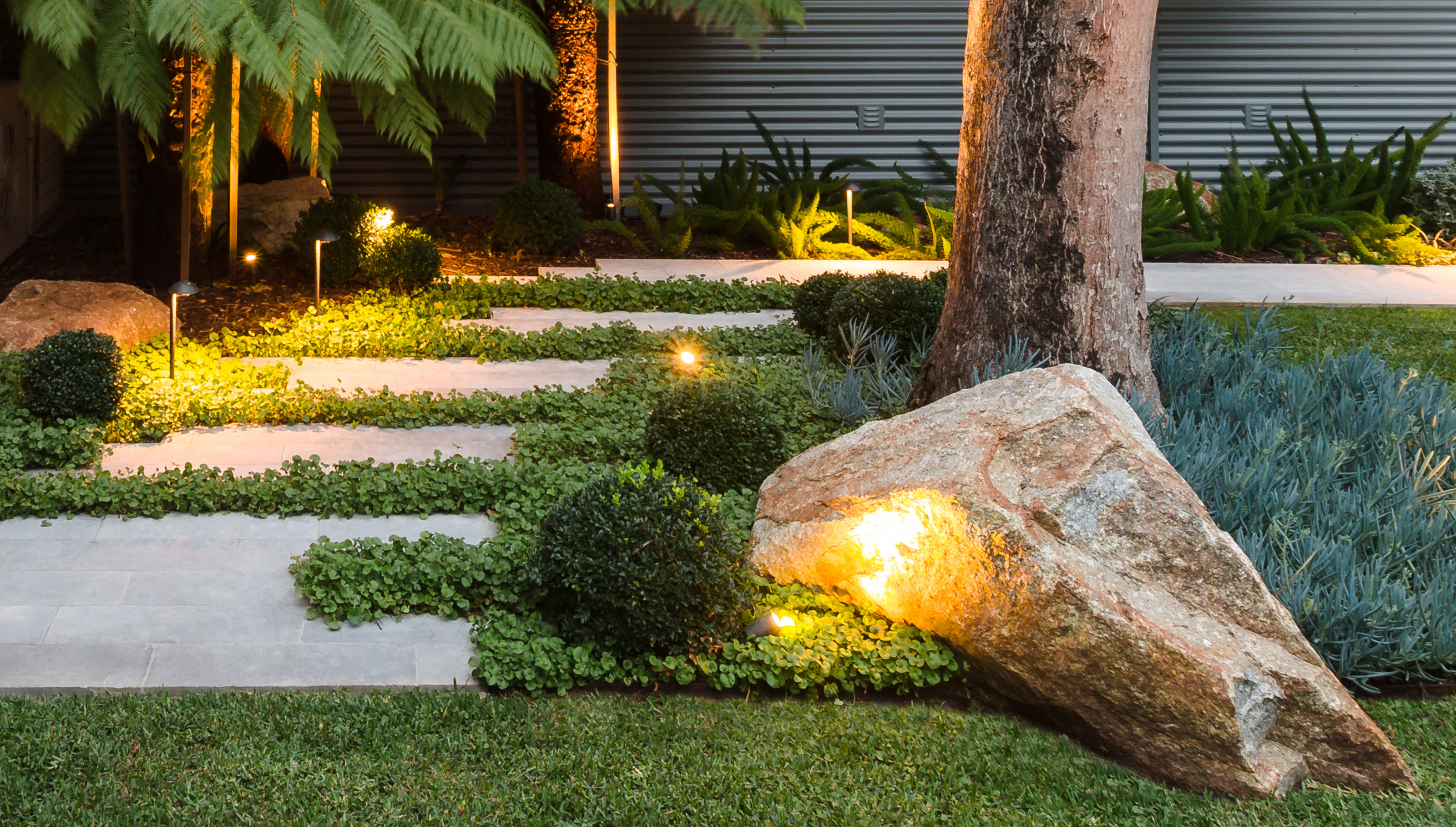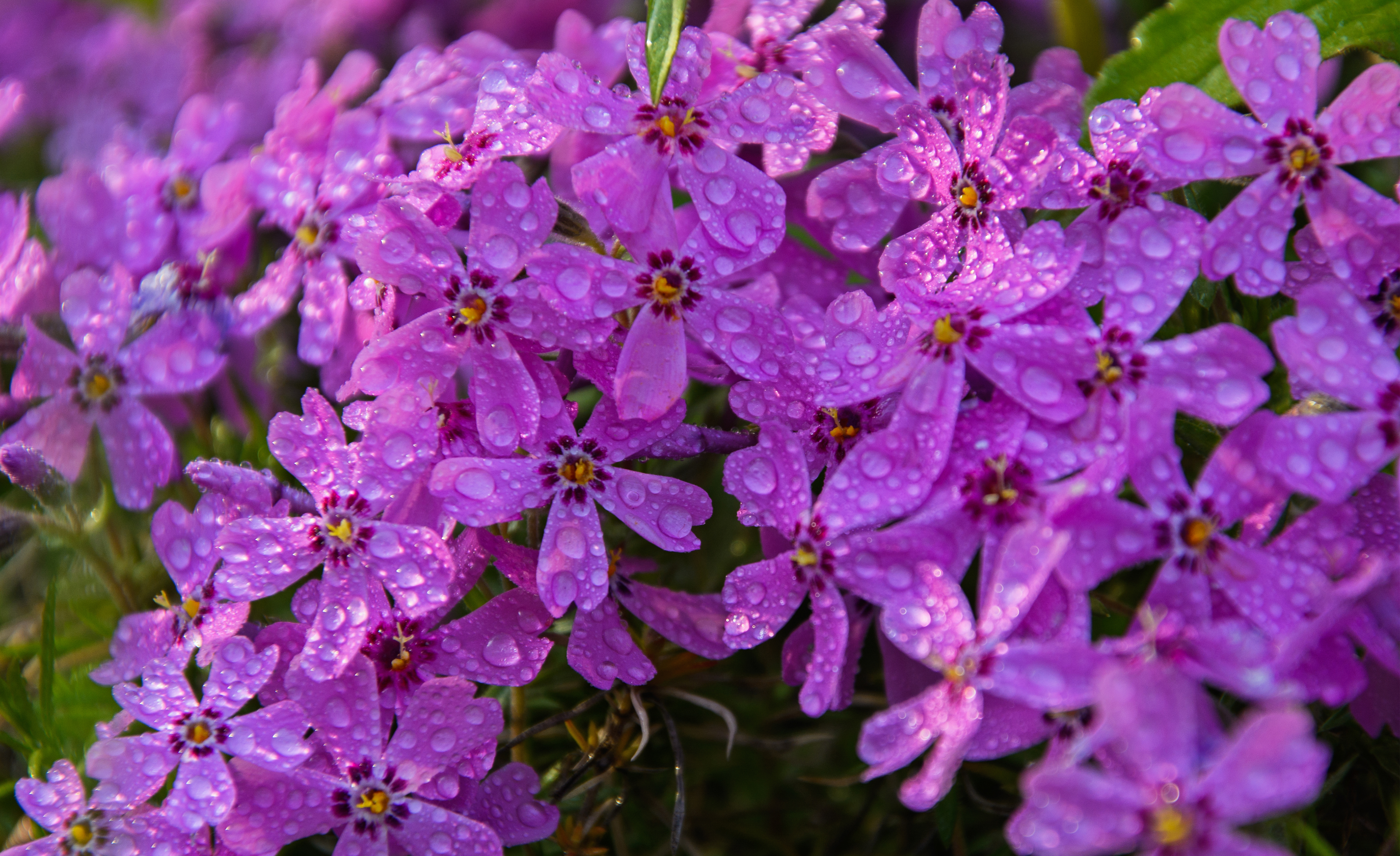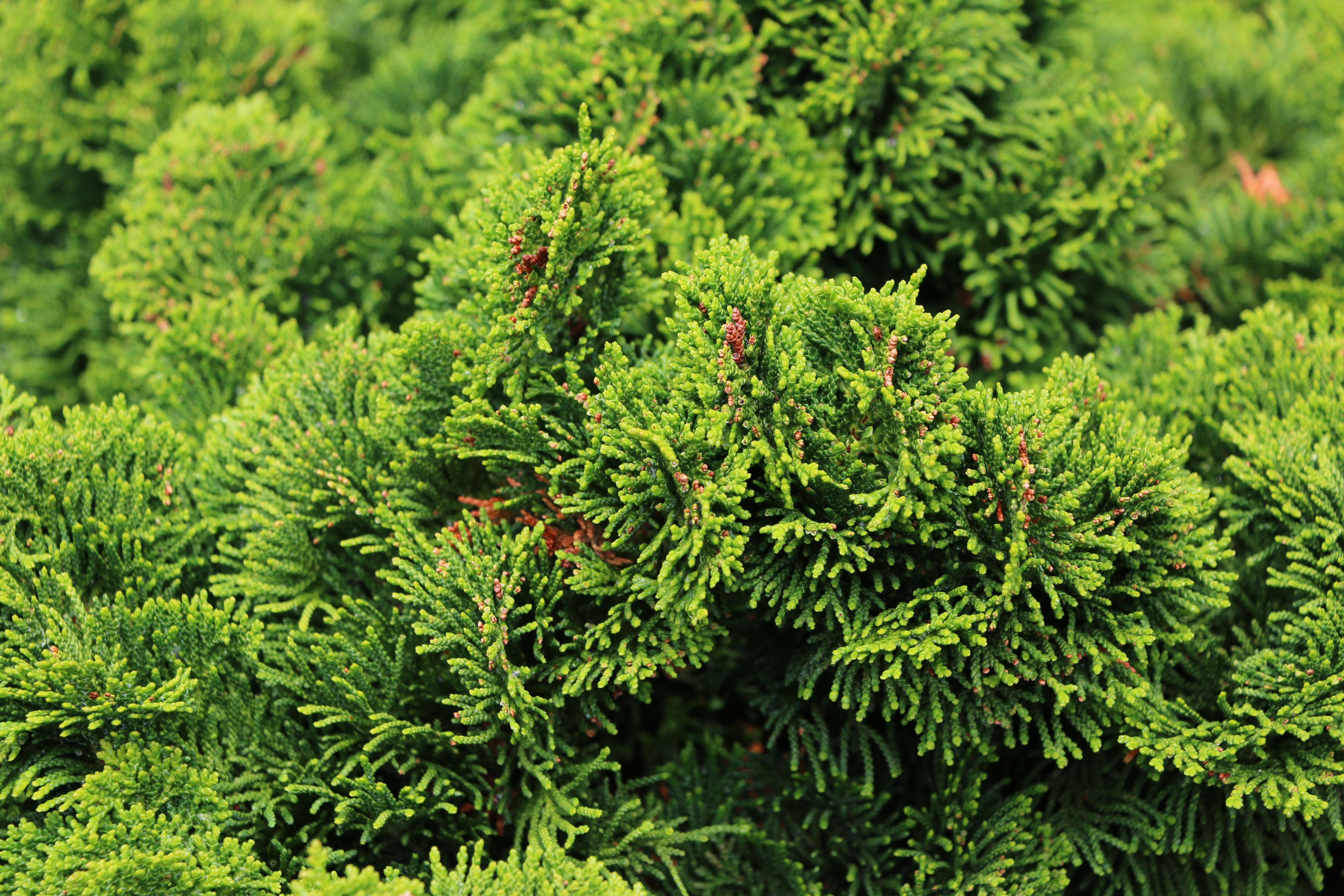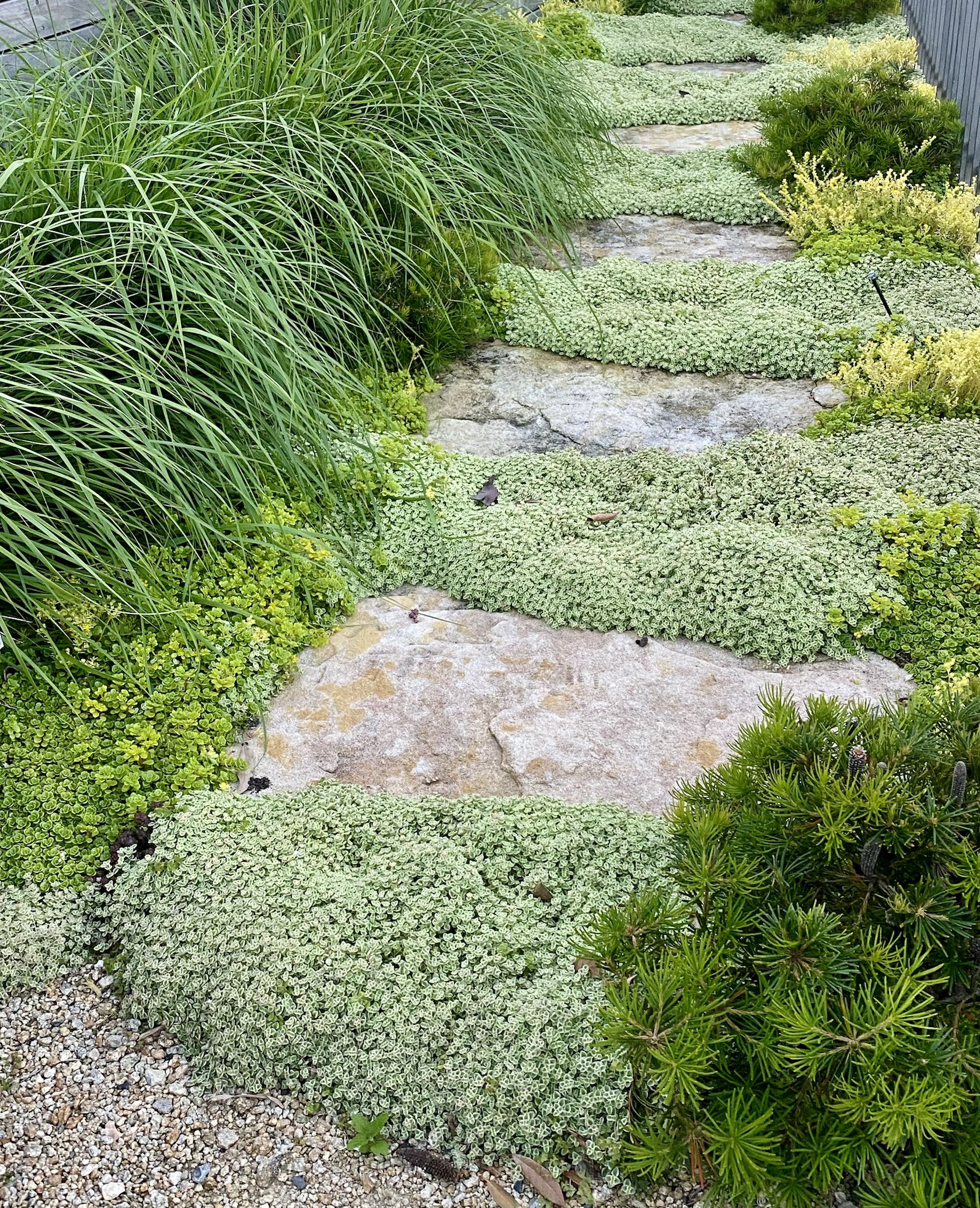
Garden weeds are the bane of every gardener's existence — especially if you're working overtime to keep your lawn looking its best. These plants are known to crop up anywhere around the yard, from spaces between the walkway to your beloved garden beds. Weeds can be quite a nuisance, so if you're looking to get rid of them for good, we've got a solution.
For a natural, low-maintenance, and eco-friendly way of banishing them, perennial groundcovers could be your saving grace. They are known to be low-growing plants which spread a foliage on the ground, some even bring in an abundant array of colorful flowers. Best of all, these ground cover plants can grow quickly and help choke out weeds as it spreads. "Groundcover plants play a crucial role in maintaining a healthy garden by preventing weed growth," explains Zahid Adnan, gardening expert at The Plant Bible. "Not only do they suppress weeds, but they also provide aesthetic benefits, enhance soil health, and reduce maintenance efforts."
Whether you're looking for grass alternatives, or just something to add to your flower beds — here is a selection of expert-approved best ground cover plants to prevent weeds.
Best ground cover to prevent weeds
Low maintenance ground covers for shade and for stopping weed from peaking through — will certaintly grant you a more vibrant and peaceful yard.
Without further ado, here are 7 ground coverings to prevent weeds.
1. Ground Clover

Clover lawns have been rising in popularity in recent years, and for good reason. A far more low-maintenance, cost-effective, and eco-friendly alternative to your standard grass, they offer a bed of soft foliage underfoot and do a great job of suppressing weeds, too.
"Clover is a natural fertilizer for soil, by absorbing nitrogen from the atmosphere and transforming it into nitrogen usable by other plants," explains Matthew Koch Ph.D., Product Development Lead of the Seed and Biotech Teams at Scotts Miracle-Gro. "Since nitrogen is a key nutrient that encourages plant growth, it can help to crowd out weeds."
Matthew recommends planting clover on its own or mixing seeds with more traditional turf grass varieties for even stronger foot traffic tolerance. If you're not especially green-thumbed, it's probably the safest option you can choose. As Matthew explains: 'It requires very low maintenance, no fertilizer or mowing, and is more water conscious than traditional grass lawns.'
Hardiness zone: 3-10
2. Creeping Phlox

For another whimsical-looking groundcover idea that keeps weeds at bay, try Creeping Phlox, also known as phlox subulata. This carpet of colorful and fragrant flowers also doubles up as a great pollinator, making it a brilliant option for wildlife gardening.
"Creeping Phlox can help to reduce weed growth due to its dense growth which often forms a mat-like ground covering that tends to smother weeds by blocking sunlight from plants attempting to grow underneath," says Matthew. "You can plant Phlox closer together to encourage density of growth, too."
As a groundcover, it's also relatively low-maintenance. As Matthew notes, although young plants need more frequent watering, once the plants are established they tend to be quite drought resistant. "When not in bloom, the leaves of the plants resemble green, needle-like small leaves," he says.
Hardiness Zone: 3-9
3. Creeping Juniper (Blue Rug)

A great choice for rock gardens, Creeping Juniper produces a mass of green or blue-ish-toned foliage with a textured, feathery appearance. It's often used on sloped or rocky areas where it can help control soil erosion as well as suppress common weeds.
"This low-growing evergreen variety spreads quickly, smothering weed growth beneath its dense foliage," says Tony. "Its beautiful blue-green needles provide year-round color, even in winter, adding an appealing touch to the landscape."
Caring for this groundcover is really simple. "Plant the nursery plants in well-drained soil and provide full sun to partial shade," says Zahid Adnan of The Plant Bible. "Prune lightly in spring to maintain its shape and remove any dead branches over time."
Hardiness zone: 2-9
4. Stonecrop

One of the best walkable groundcover plants for paths, stonecrop - also known as sedum - is a small, low-growing succulent. It comes in a host of different varieties and spreads across dry ground quickly, smothering weeds in its path.
As Matthew explains: "This low-maintenance succulent forms a dense mat, inhibiting weed growth. With a variety of species boasting different leaf shapes and colors, Sedum provides an appealing mix of aesthetics and practical weed suppression." Since it's a type of succulent it prefers full sun and well-drained soil, so just be sure to avoid using it in any damp or shady areas.
Hardiness zone: 3-9
5. Creeping Thyme

The fragrant foliage of a creeping thyme lawn has made it a popular groundcover plant. It's super hardy, drought-tolerant, and prefers full sun, making it a practical choice for keeping weeds at bay in a dry garden.
Thanks to its woody stems, Creeping Thyme can withstand foot traffic, too. As Zahid explains: "Its low-growing habit creates a lush carpet-like effect, adding visual interest to pathways or rock gardens."
Besides its aesthetic appeal, it has some superhero properties when it comes to suppressing weeds as well. "Creeping Thyme helps to choke out weeds due to its dense growth habits that create a physical barrier, preventing weed seedlings from growing," notes Matthew. "It also has allelopathic properties, meaning it releases naturally occurring chemicals that can prevent the growth of certain weeds."
Hardiness zone: 4-9
6. Irish Moss

"Irish moss forms a dense carpet of tiny, moss-like foliage that effectively prevents weed emergence," says Zahid.The fast-growing evergreen perennial will soon form a dense carpet of foliage wherever you plant it, resulting in a soft cushioned effect
This lush plant prefers moist soil and partial shade, so it's a great option for the dark corners of your shady garden. Zahid suggests regular misting or watering during dry spells to maintain optimal growth.
"It covers bare ground easily, helping to reduce weed seed germination,' he adds. 'Its delicate white flowers also provide charming accents, making it an excellent choice for borders or between stepping stones."
Hardiness zone: 4-8
7. Creeping Jenny

This hardy perennial forms spreading mats of long stems that do an excellent job of smothering weeds. Green, oval-shaped leaves adorn the stems and make an attractive backdrop to five-petalled yellow flowers in summer, giving your garden a forest-like feel.
"Its quick spreading habit makes it a particularly effective weed deterrent," says Tony. It's also super versatile, thriving in most lighting conditions as long as the soil is moist. Use it on the edge of your modern garden borders for a burst of color that will creep onto your path.
Hardiness Zones: 3-9
FAQS
What is the fastest spreading ground cover that can help prevent weeds?
If you're looking to decorate your yard this season and want to get it done as soon as possible, you'll want to find fast spreading shrubs for your ground cover.
The fastest spreading ground covers are creeping thyme and ajuga. These flourishing blooms can grow and spread multiple feet a year. Creeping thyme can grow between 2 -3 inches tall, while ajuga can grow between 1-6 inches tall.







